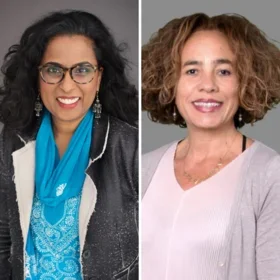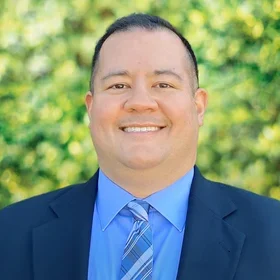Brito credits the program for introducing him to executive-level concepts and real-life executive experiences that helped him advance in his career at Hewlett-Packard.
What initially attracted you to the Technology Management program at Columbia University?
While working in sales engineering at Hewlett-Packard I decided that I wanted to gain additional skills that would help advance my career. As part of my job at HP I would meet and have conversations with a customer CTO or Director, but my background was in the technology itself, so those conversations were not always productive. I knew I needed to understand my customers better, especially how they made decisions and managed their organizations.
I researched a variety of different graduate programs, mostly MBAs, and decided that the Executive M.S. in Technology Management offered the best program for me.
The curriculum incorporates executive-level concepts and experience taught by professors and real-life executives. These lessons—particularly as they related to making C-level decisions within an organization—were incredibly helpful and directly applicable to the role I had at the time and to my career aspirations.
Was there a course or area of study that you found particularly impactful?
One course really stood out for me: Professor Lyle Yorks taught Strategic Advocacy using his book, Strategic Information Technology: Best Practices to Drive Digital Transformation, which is co-authored with Dr. Art Langer, Academic Director of the program. The faculty members ran us through strategic scenarios, discussed their differing points-of-view while sharing first-hand experience, and engaged in conversation with the students, answering their questions while helping them understand their own organizations better. That is not something you can get from the book alone, and it was invaluable.
The lessons I learned throughout the course—especially those on applying emotional intelligence to accomplish change—influenced my entire approach to work and how I interact with my peers. I learned how to win proponents, manage opponents, and enable win-win scenarios to achieve my goals. I was able to apply what I was learning to my day-to-day responsibilities and see positive results immediately. I felt like my world had just expanded!
I had many of these “awakenings” during the program. The faculty would dive deep into the fundamentals of a concept, and then explain several ways the concept could be applied, often using their own experience as an example. This helped make the lessons surprisingly “real.” Even the finance component of the program helped in unexpected ways: after learning about the Black-Scholes model and Monte Carlo simulation (which included practical hands-on experimentation) I started analyzing the future value and risk of the decisions I make in all parts of my life.
The level of education in the program is world-class, and I directly credit it with helping me accomplish the career goal I set for myself before entering the program: I went from individual contributor to district manager to territory manager to director, all within the past five years.
What would you recommend to other students to help them make the most of their experience at Columbia?
Your Columbia experience doesn’t have to end after graduation! The best part of Columbia is the students and faculty, so use the tools offered by the school to stay engaged (like the Columbia Alumni Association or auditing a class). When my program ended, I felt a strong drive to stay connected to my peers and contribute back to the program. I even sought out the opportunity to teach as a course assistant, and I’m now going into my fourth year helping with Mark Mooney’s Sales and Marketing course. I love sharing my experience with the class and learning from our own students. My interactions with them help me grow as I listen to their unique perspectives and business cases, and I hope I am doing the same for them.
Learn more about the Executive M.S. in Technology Management program at Columbia's School of Professional Studies.


